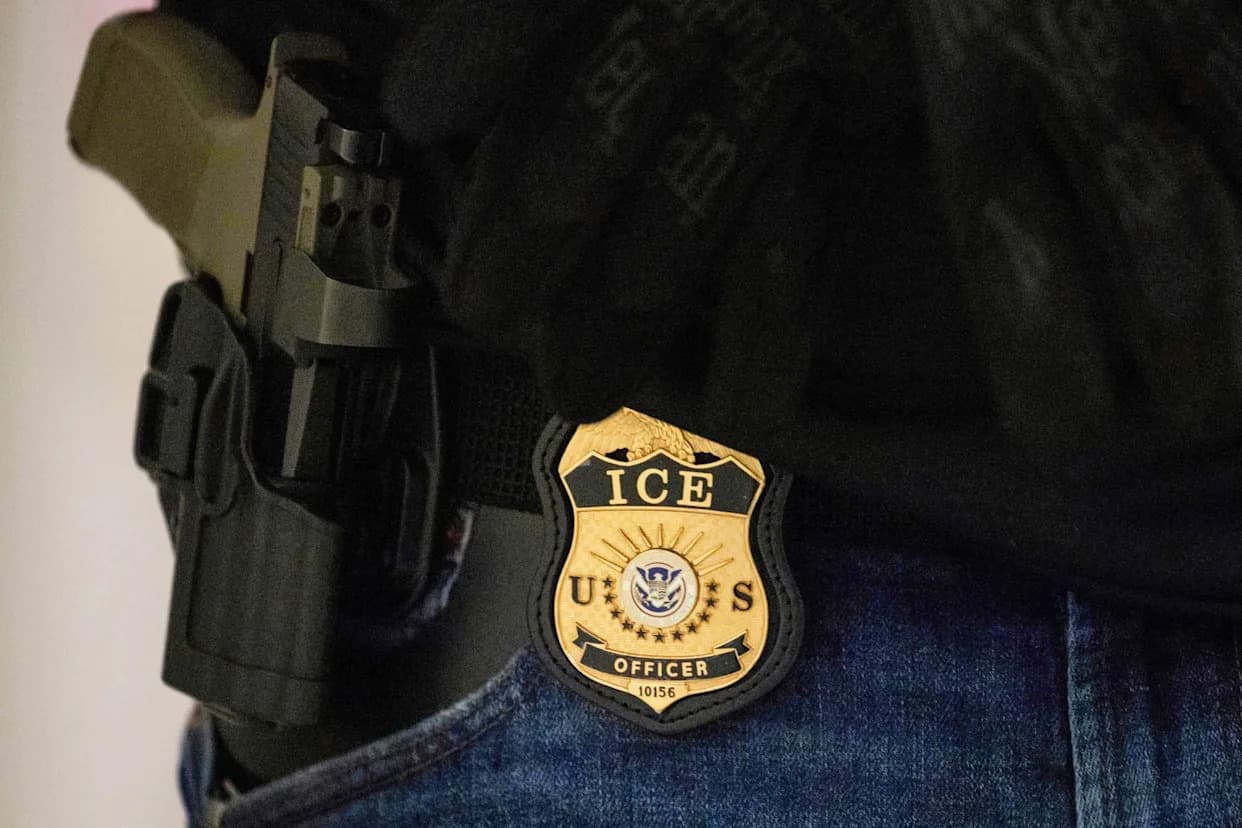Kilmar Abrego Garcia, a Salvadoran resident of Maryland who was mistakenly deported earlier this year, faces Dec. 8–9 hearings in Tennessee on federal human-smuggling charges after being returned to the U.S. by court order. His defense asks U.S. District Judge Waverly Crenshaw to dismiss the case as selectively or vindictively prosecuted and to suppress evidence from a 2022 traffic stop. The judge has signaled concern about public remarks from senior officials, and the rulings could determine whether the case proceeds to trial. Abrego Garcia remains barred from removal to El Salvador under a 2019 settlement and has applied for asylum.
After Wrongful Deportation, Kilmar Abrego Garcia Fights Human-Smuggling Case — Key Facts Ahead of Dec. 8–9 Hearings

What happened
Kilmar Abrego Garcia, a Salvadoran national who was mistakenly deported earlier this year and later returned to the United States, faces federal human-smuggling charges in Tennessee. U.S. District Judge Waverly Crenshaw is scheduled to hear defense motions to dismiss the indictment and to suppress evidence on Dec. 8–9.
Background
Abrego Garcia lives in Maryland with his American wife and child. He entered the U.S. as a teenager to join his brother and in 2019 an immigration judge found he had a "well-founded fear" of persecution in El Salvador, temporarily blocking his removal. Earlier this year he was mistakenly deported to El Salvador and detained in a violent prison despite having no criminal record. Following public outcry and a court order, federal authorities returned him to the United States in June — after an arrest warrant on human-smuggling charges was filed in Tennessee.
The charges and how they began
Federal prosecutors have charged Abrego Garcia with human smuggling and conspiracy to commit human smuggling, alleging that he accepted payment to transport people who were unlawfully in the country. The indictment traces back to a 2022 traffic stop in Tennessee for an alleged speeding violation. Body-camera footage shows a calm encounter with a Tennessee Highway Patrol officer; there were nine passengers in the vehicle, and officers discussed suspicions of smuggling, but Abrego Garcia was ultimately given a warning and allowed to leave.
At an earlier hearing, a Department of Homeland Security agent testified that the investigation of that stop did not begin until after the U.S. Supreme Court in April ordered steps to return Abrego Garcia to the United States.
Key defense motions
1) Motion to dismiss — selective or vindictive prosecution
Abrego Garcia asks the judge to dismiss the charges, arguing the prosecution is selective or vindictive. Judge Crenshaw has already said there is "some evidence that the prosecution against him may be vindictive" and expressed concern about public statements by senior Justice Department officials. The judge specifically noted a comment by Deputy Attorney General Todd Blanche on a Fox News program that appeared to link the prosecution to Abrego Garcia's earlier wrongful-deportation victory.
The defense seeks to compel testimony from senior Justice Department officials; prosecutors oppose that and say the Acting U.S. Attorney for the Middle District of Tennessee, who decided to bring the case, has explained the prosecution was based on legitimate public-safety concerns.
2) Motion to suppress — legality of the traffic stop
Separately, Abrego Garcia moved to suppress evidence obtained from the 2022 traffic stop, arguing the stop was unlawful. Court filings assert the trooper recorded the posted speed limit as 65 mph when a 70 mph sign was in effect at the location and alleged Abrego Garcia was driving 75 mph without evidence the trooper used radar or pacing. Abrego Garcia contends he was driving at 70 mph, the posted limit. Government attorneys say the trooper made an honest mistake, noting the speed limit drops to 65 mph a short distance down the interstate and that the defendant was in the left lane.
Removal, asylum and third-country transfers
Abrego Garcia remains protected from deportation to El Salvador under the 2019 settlement that found he faced a well-founded fear of harm. The administration, however, has said he cannot remain in the U.S. and has explored transferring him to third countries such as Uganda, Eswatini, Ghana and Liberia. Advocacy groups have challenged those third-country transfer agreements, citing human-rights concerns. In June, a divided U.S. Supreme Court allowed rapid removal of immigrants to countries other than their homelands under certain procedures.
Abrego Garcia has sued the federal government in Maryland over his earlier deportation; a judge there has temporarily barred his removal. If that injunction is lifted, government lawyers have said they are prepared to move quickly to deport him. He has also applied for asylum in immigration court.
What to watch at the hearings
The Dec. 8–9 hearings will focus on whether the charges should be dismissed because of alleged vindictive or selective prosecution and whether evidence from the traffic stop should be suppressed. The outcome of those motions could determine whether the case proceeds to trial and will shape related questions about the role of senior Justice Department officials' public statements in federal prosecutions.
Bottom line: The case raises legal questions about prosecutorial motivation, the limits of public statements by officials, and the evidentiary standards for traffic stops that spawn federal immigration investigations.
Help us improve.



























